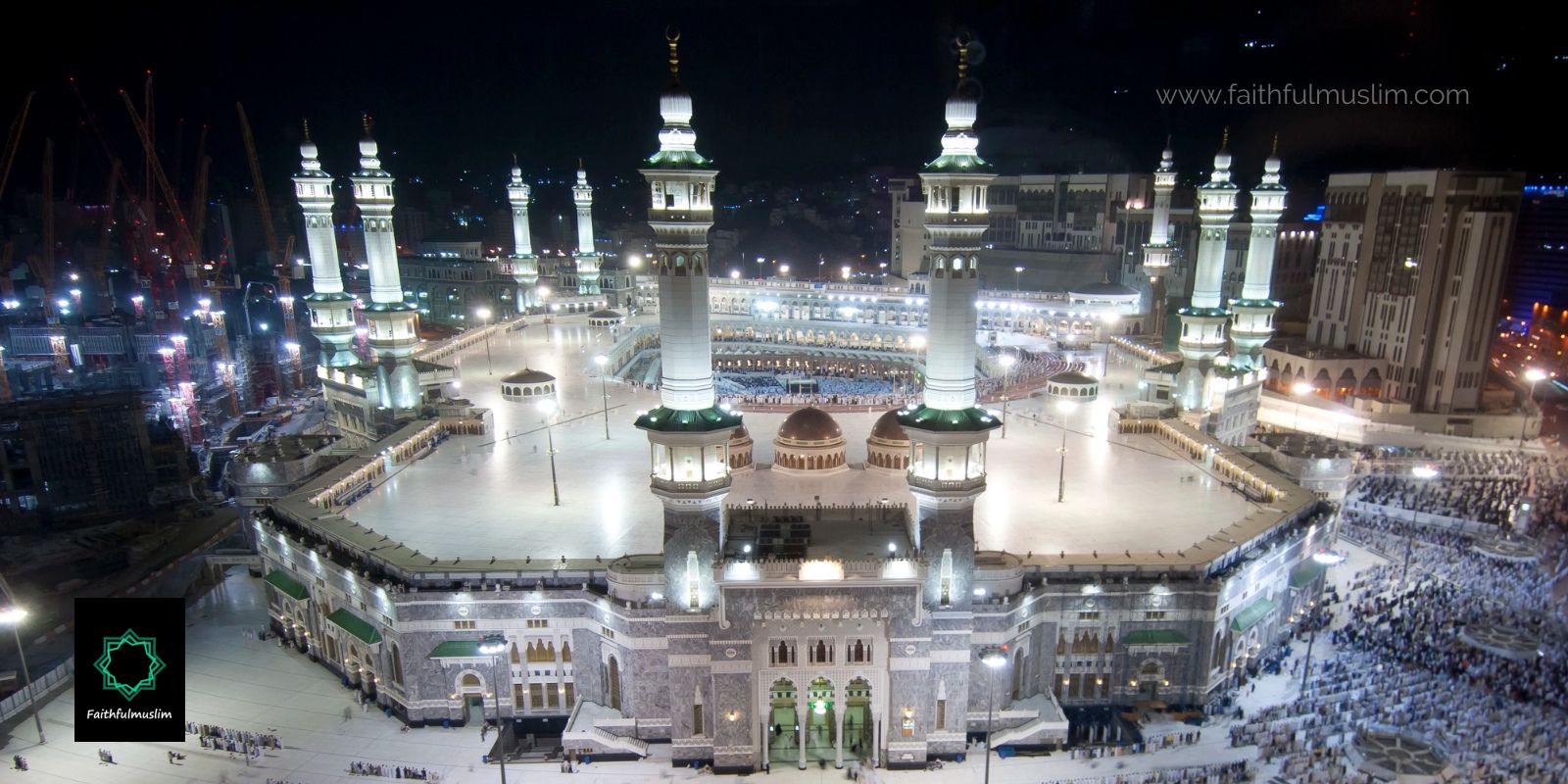
Hajj is one of the five pillars of Islam. It is a way of worship that has a set of rituals done in a specific time at a specific location by Muslims. But it is not obligatory for all. What makes Hajj compulsory for someone? When do Hajj take place? And where do Muslims perform Hajj? Let's get into all these details here.
Hajj is not an obligation for everyone at any time. In Islam, it only becomes a responsibility when certain conditions are met.
Only Muslims are required to perform Hajj. Acts of worship from non-Muslims are not accepted. Allah says:
"وَمَا مَنَعَهُمۡ أَن تُقۡبَلَ مِنۡهُمۡ نَفَقَٰتُهُمۡ إِلَّآ أَنَّهُمۡ كَفَرُواْ بِٱللَّهِ وَبِرَسُولِهِۦ وَلَا يَأۡتُونَ ٱلصَّلَوٰةَ إِلَّا وَهُمۡ كُسَالَىٰ وَلَا يُنفِقُونَ إِلَّا وَهُمۡ كَٰرِهُونَ"
“And what prevents their expenditures from being accepted from them but that they have disbelieved in Allah and in His Messenger and that they come not to prayer except while they are lazy and that they do not spend except while they are unwilling.”
[Quran 9:54]
So, first, a person must become Muslim by accepting Islam.
The Prophet (PBUH) said:
“There are three (persons) whose actions are not recorded: a sleeper till he awakes, a boy till he reaches puberty, and a lunatic till he comes to reason.”
[Abu Dawud 4403]
So, children and people who are mentally ill are not required to perform Hajj. But if a child does perform Hajj, it is accepted and counts as a valid Hajj. Ibn Abbas (Allah be pleased with him) reported:
"A woman lifted up her child and said: Messenger of Allah, would the child be credited with having performed the Hajj? Thereupon he said: Yes, and there would be a reward for you."
[Muslim 1336]
A slave is not required to perform Hajj because they do not have full independence. Hajj only becomes obligatory after a person is freed. However, if a slave does perform Hajj, it is accepted by Allah and counts as a voluntary Hajj. But if the person is later freed, they must perform Hajj again to fulfill the obligation of the mandatory Hajj.
Allah says:
"فِيهِ ءَايَٰتُۢ بَيِّنَٰتٞ مَّقَامُ إِبۡرَٰهِيمَۖ وَمَن دَخَلَهُۥ كَانَ ءَامِنٗاۗ وَلِلَّهِ عَلَى ٱلنَّاسِ حِجُّ ٱلۡبَيۡتِ مَنِ ٱسۡتَطَاعَ إِلَيۡهِ سَبِيلٗاۚ وَمَن كَفَرَ فَإِنَّ ٱللَّهَ غَنِيٌّ عَنِ ٱلۡعَٰلَمِينَ"
“In it are clear signs [such as] the standing place of Abraham. And whoever enters it shall be safe. And [due] to Allah from the people is a pilgrimage to the House – for whoever is able to find thereto a way. But whoever disbelieves – then indeed, Allah is free from need of the worlds.”
[Quran 3:97]
So, you must be physically and financially able to perform Hajj. If someone is very sick or does not have enough money, then Hajj is not required for them. You should only go for Hajj if you have extra money, after paying for your home, food, bills, and all your family's needs. Hajj should not cause hardship for you or your family.
A woman must have her mahram with her to do Hajj. Hadith narrated Ibn `Abbas:
"The Prophet (PBUH) said, "A woman should not travel except with a Dhu-Mahram (her husband or a man with whom that woman cannot marry at all according to the Islamic Jurisprudence), and no man may visit her except in the presence of a Dhu-Mahram." A man got up and said, "O Allah's Messenger (PBUH)! I intend to go to such and such an army and my wife wants to perform Hajj." The Prophet (PBUH) said (to him), "Go along with her (to Hajj)."
[Sahih al-Bukhari 1862]
However, in 2022, the Saudi government changed its rules for Hajj and Umrah. Now, women are allowed to perform Hajj or Umrah without a male guardian (mahram). This means they no longer need to be with a husband, father, brother, or other male relative during the pilgrimage. While this goes against the traditional Islamic value, contemporary scholars, including those in Saudi Arabia, have permitted this based on evolving circumstances and jurisprudential reasoning (fiqh al-waqi’).
Hajj begins every year on the 8th of Dhu al-Hijjah, the last Islamic month. It ends on the 12th or 13th. The pilgrimage lasts for about five or six days, depending on when the new moon is seen. And when the new crescent moon is spotted, Eid al-Adha begins and lasts for three days. On the morning of Eid al-Adha, Muslims gather to perform a special Eid prayer. But the most important day of Hajj is the 9th of Dhu al-Hijjah, called the Day of Arafah. This day is considered the heart of Hajj.
The Islamic calendar is based on the moon, so its dates change each year. Because of this, Hajj begins about 10 or 11 days earlier every year on the regular (Gregorian) calendar than the previous year. This means Hajj can happen twice in one Gregorian year every 33 years. The last time this happened was in 2006. So, it’s important to always check the Islamic date when planning for Hajj.
Hajj 2025 is expected from 4th to 9th June, based on moon sighting.
Hajj takes place in Makkah or Mecca, in Saudi Arabia. You perform it over five to six days. During this time, you do special rituals in different places around Makkah including Arafah, Mina, Muzdalifah. Each place has its own meaning and time to visit. You have to do everything just like the Prophet Muhammad (PBUH) showed us. Muslims from all over the world come together in these holy places to pray and worship.
So now you know if Hajj has become compulsory for you or not. Hajj requires long term planning and preparation for anyone be it physical, spiritual or financial. Discover the challenges associated with performing Hajj so that you can prepare yourself better for this pilgrimage.